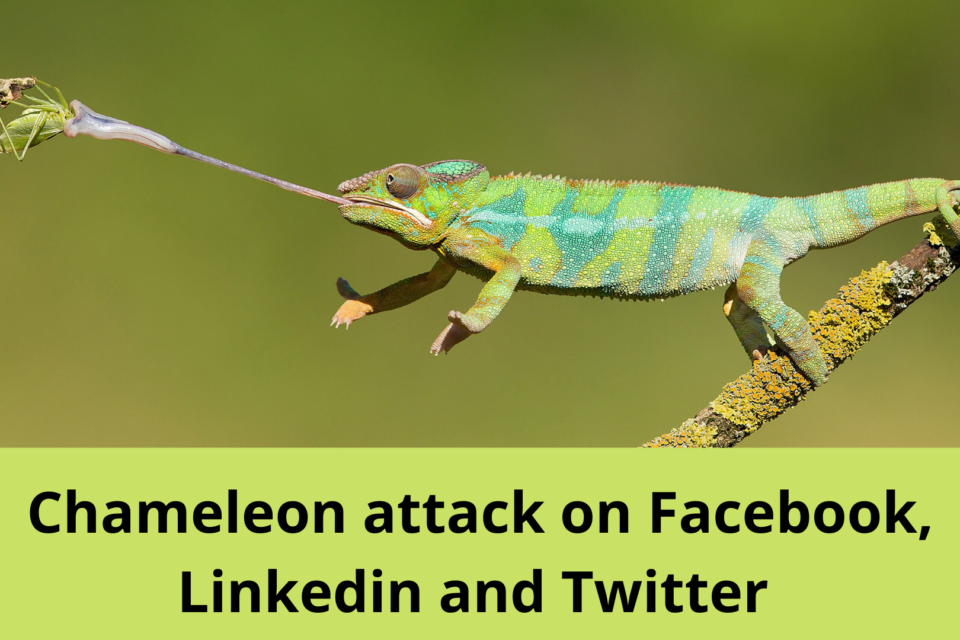Chameleon attack can now manipulate your ‘likes’ on Facebook, Linkedin and Twitter

Cyberattacks are of different types with unique motives, this new attack in the industry manipulates users ‘likes’ on Online Social Networks (OSN) Facebook, Linkedin and Twitter. However, WhatsApp and Instagram are safe, while Reddit, Flickr and Tumblr could be vulnerable.
The security researches Aviad Elyashar, Sagi Uziel, Abigail Paradise, and Rami Puzis from Ben-Gurion University of the Negev, Israel have discovered this OSN trickery called the Chameleon attack.
What is the Chameleon attack?
The link previews and redirected links in the OSN is taken advantage to alter the published content. This OSN based trickery lures users to like a malicious posts and alter itself to a different content/post after user’s action is called the Chameleon attack.
If a user is lured to like a post or profile which he otherwise would not have done consciously is what Chameleon attack is intended to do. The attackers here create could create a fake profile or group, by-pass moderation filters, and confuse the moderators between the real and the Chameleon page.
This flaw could impact users’ reputation and image by making them like unwanted posts or profiles.
Five phases of the Chameleon attack

Reconnaissance: The attacker studies the victims’ area of interest and creates a fake post or page using the basic techniques.
Weaponizing: Attacker uses the redirecting links to create one or more redirection chains to different sources.
Delivery: Phishing or spear-phishing attacks are used to attract the users attention.
Maturation: Chameleon material develops reliability within the social platforms, and then interact with the targeted victims. This is not a sophisticated attack, as the standard cyber kill chains do not consider them so, however, developing trust and reliability with social platforms could depend on the motive, targeted or untargeted Chameleon attacks
Execution: After all the above process, the attacker then alters the posts and profiles by redefining the redirect target links and refreshing the link previews.
The researchers have also published a research paper on this Chameleon attack. The below video shows the live execution of this attack in Facebook.
When this article was written, the researchers hadn’t identified any fix for this attack and had requested other security researchers to consider this Chameleon attack along with phishing, spear-phishing and related scam attacks while researching on the OSN vulnerabilities and security. Until a solution is identified users are requested to be careful of Chameleon posts and profiles in social medias.





